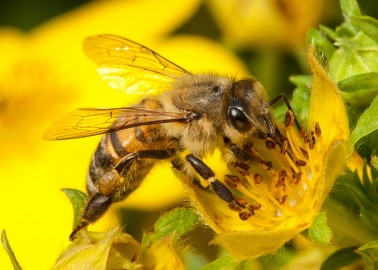A new study reveals that queen bees apparently vaccinate the other members of their colonies where this natural vaccination can prevent potentially dangerous population losses by protecting the rest of the colony.
According to researchers from the Arizona State University, they have discovered how these insect rulers protect their own kind via a protein called vitellogenin that are found in the bloodstream of bees. This substance also plays a pivotal role in preventing the spread of diseases among insects.
These queen bees seldom leave their nests where other members of the colony bring food to them called royal jelly. This royal jelly is produced with pollen and nectar that are collected by foraging bees where this raw material naturally includes bacteria.
After feeding on this royal jelly, the queen bee stores these microorganisms in her body fat which functions similarly to a liver. These contaminated fragments will now circulate through the blood stream and get absorbed by her developing eggs. This kind of process involving the protein vitellogenin provides much needed protection for the immune systems of bees when they are already born.
According to Gro Amdam of the School of Life Sciences from ASU, this process where the queen bees transfer their immunity to their young has been a mystery until now which is apparently simply quite similar to eating. This discovery is attributed to 15 years of research on vitellogenin where long term investments on research has finally paid off.
This new study of natural immunization can now lead to new techniques how to treat and aid commercial beehives in order to prevent colony collapse disorder. Each winter, this disorder plagues the bees that results in huge bee population losses. With this new genetic information, this can now allow researchers to develop new edible vaccines for the insects.
According to Dalial Freitak of the University of Helsinki, the team is already trying to patent a harmless vaccine and in the process, cultivate these vaccines and introduce them to beehives via a cocktail that would be palatable for bees which can be very effective in preventing diseases among them.
This new study is published in the journal, PLOS Pathogens.



























